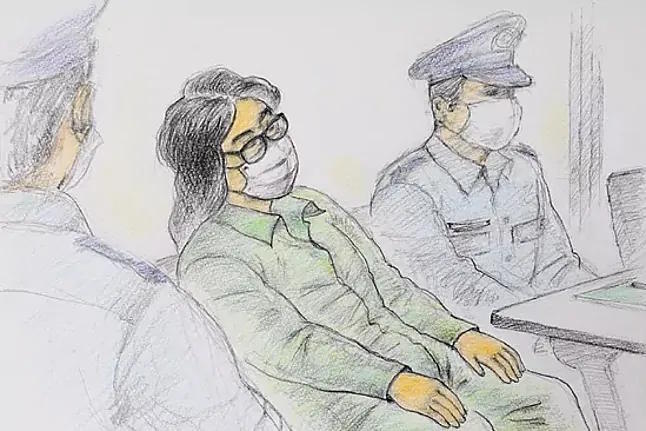Between August and October 2017, Takahiro Shiraishi murdered, raped, and dismembered nine people. He stored the remains of his victims in his apartment in the town of Zama, on the outskirts of Tokyo. After being arrested and his crimes came to light, the local press dubbed him the "Twitter killer" because he had contacted almost all of his victims, eight women and one man aged between 15 and 26, through the social network. This Friday, Shiraishi was executed in the Japanese capital.
In Japan, the death penalty is carried out by hanging, and prisoners are notified just hours before it is carried out. It had been almost three years since no prisoner sentenced to death had been hanged in Japan. Shiraishi, 34, received his sentence in 2020 after pleading guilty to murders that shocked the Japanese.
Shiraishi worked at a supermarket until he moved into the murky sex industry in Tokyo as one of the "hunters" of Kabukicho, the red-light district of the capital. His job was to lure young women to work in host clubs, bars where the customer enjoys their drink in the company of an attractive employee. This employee encourages the customer to buy more expensive drinks - for both of them - in exchange for a seductive conversation or a shoulder to cry on. Some of these bars strictly serve this function. But others are undercover brothels controlled by mafias.
In early 2017, Shiraishi was arrested for trying to deceive a young woman into working as a "waitress" in a brothel where she would be forced into prostitution. After being released, Shiraishi returned to Zama, where he opened several Twitter accounts and began contacting dozens of women. All of them had one thing in common: they had posted suicidal messages on social media. He tried to seduce them and ask for money. Those who fell into his trap were invited to his house, where he strangled them.
The first victim, in August 2017, was a 21-year-old girl named Mizuki Miura. After killing her, Shiraishi raped and dismembered her body. The wave of murders intensified in the following weeks. Among his victims was also a friend of Miura, who showed up at the killer's apartment looking for the girl.
On Halloween that year, another of the murdered women's brother, who had reported her disappearance, discovered the messages she had exchanged with Shiraishi and alerted the police. When the officers entered his apartment, they found three portable coolers and five small containers containing heads and human bones covered with clumping cat litter. In the "house of horrors," there were also several knives, a saw, many carpentry tools, and ropes.
"His crimes included robbery, rape, murder, and destruction and abandonment of corpses. Nine victims were beaten, strangled, murdered, robbed, and then mutilated with parts of their bodies hidden in boxes and others discarded in a garbage dump," detailed Justice Minister Keisuke Suzuki on Friday after news of the execution emerged. "The case had extremely serious consequences and caused great shock and concern in society," he continued.
Japan and the United States are the only two members of the G-7 group of industrialized economies that maintain the death penalty. In the Asian country, according to the latest official surveys, there is overwhelming support for executions to continue.
However, human rights groups often criticize that the execution is communicated to the condemned just hours before it takes place, usually in the early hours of the morning while they are sleeping. Shiraishi was hanged at the Tokyo Detention Center secretly, and nothing was known until the execution was carried out. "I signed the execution earlier this week, but I did not witness the hanging," explained the Justice Minister.
The last hanging was that of Tomohiro Kato in 2022. This man carried out a mass hit-and-run in 2008 with a rented truck and then stabbed several people, leaving seven dead. In December 2023, according to the latest data from the Ministry of Justice, there were 107 prisoners in Japan awaiting the execution of their death sentences.
